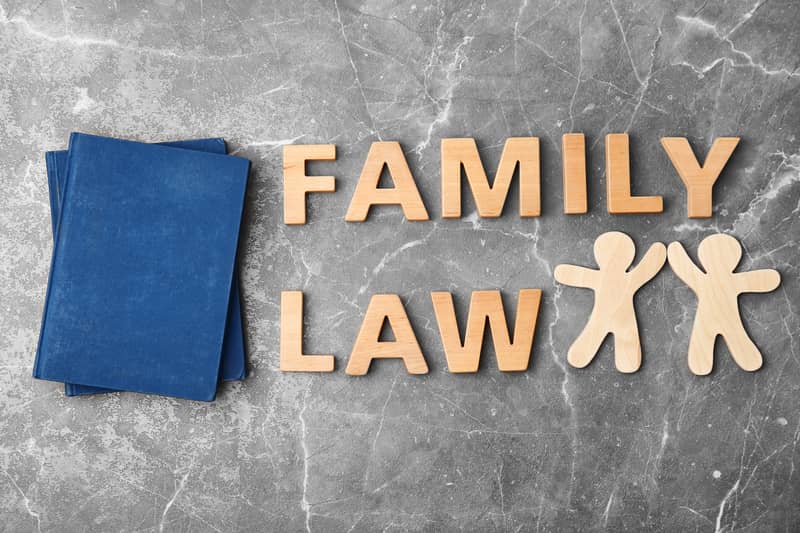
Separation and Divorce: Helpful Tips for a Happy Holiday Season
The holiday season, a time traditionally associated with joy, togetherness, and celebration, can become a daunting ordeal for those navigating the sometimes turbulent waters of divorce, parenting, and visitation.
In the midst of twinkling lights and festive cheer, some parents find themselves grappling with a complex array of emotions, occasionally including the “holiday blues.”
That’s entirely normal and understandable.
Even in the best circumstances, the holidays can be challenging.
Divorce is a life-altering journey, and when combined with the responsibilities of co-parenting, the challenges can feel overwhelming.
Amid any swirling uncertainty, hope and empowerment can be found – Bill Powers, Divorce Attorney
This post seeks to shed light on the poignant subject of divorce, visitation, and co-parenting, offering some practical tips during the holiday season.
Join us as we explore the transformative power of resilience, compassion, and effective co-parenting strategies.
Our goal is to encourage harmonious and memorable holiday experiences.
Consider Your Personal Well-Being
It’s smart for parents to consider their own needs and mental health during and after a divorce.
Remember that taking care of yourself is not selfish and may, in fact, be a healthy aspect of being the best parent you can be – Bill Powers, Divorce Lawyer Charlotte NC
Seeking support from friends, family, or a therapist may provide valuable outlets for processing emotions and stress.
Divorce can bring about feelings of guilt, especially when it involves children.
It’s helpful to remember that legal separation and divorce are complex decisions, and feeling guilty is an understandable (and very human) part of the process.
Allow yourself to let go of that guilt and focus on creating a positive environment for both you and your children, which is more important in the long run.
Rather than dwelling on the challenges of divorce, try to focus on the positive aspects and newfound freedoms.
Understand that spending some time away from your children can provide you with opportunities for personal growth, self-care, and pursuing your own interests.
Love without pressure
When you do spend time with your children, make it enjoyable without pressuring them.
Let them know that your time together is about creating positive memories, not about expectations or demands.
This approach helps foster a healthy parent-child relationship post-separation and divorce.
Remember that children are resilient, and they can adapt to new family dynamics.
Embrace now
Savor the moments you have with your kids, and instead of worrying about how things used to be, focus on creating new traditions and experiences that will strengthen your bond. 
Co-parenting can be challenging, but it’s crucial to maintain a respectful and open line of communication with your ex-partner.
Keep the lines of communication open to ensure that your children receive consistent messages and support from both parents.
Flexibility is key when it comes to co-parenting.
Be willing to adjust schedules and arrangements to accommodate your children’s needs and changes in their lives. Showing adaptability and cooperation will make the process smoother for everyone involved.
Celebrate the uniqueness of your role as a parent.
Embrace the opportunities to nurture, guide, and influence your children in your own special way.
Your relationship with them is valuable and irreplaceable.
Quality over Quantity
Emphasize quality over quantity in your time with your children.
Engage in activities that promote bonding and create lasting memories.
These meaningful interactions are what children will cherish most.
Set aside time for self-care and personal growth.
Pursuing your own interests and hobbies can be fulfilling and serve as a positive example for your children on the importance of personal development.
It’s OK to ask for help
Don’t be afraid to seek support from support groups or professional counselors.
They can provide valuable insights, coping strategies, and emotional guidance.
Remember that healing takes time, and it’s okay to have moments of sadness or frustration. 
Allow yourself to grieve the loss of your previous family structure while embracing the possibilities of a brighter future for you and your children.
Ultimately, focusing on your well-being, letting go of guilt, celebrating your newfound freedoms, and creating positive, pressure-free moments with your children are steps toward building a fulfilling life post-divorce.
You have the capacity to navigate this journey with resilience and grace, ensuring a bright future for both you and your children.
Divorce Quick Tips:
- Always prioritize the best interests of the child when making scheduling decisions. They may want to see both parents and sides of the family. Listen to them.
- Consider factors such as the child’s age, preferences, and any special traditions they may have.
- Minimize disruption to the child’s routine and create a sense of stability during the holiday season.
- Technology can be a valuable tool for co-parents dealing with scheduling conflicts. Shared online calendars and messaging apps can help co-parents stay organized and coordinate visitation plans efficiently. Digital tools can reduce misunderstandings and streamline communication.
- In cases where conflicts persist despite efforts to resolve them amicably, consider involving a mediator, family counselor, or family law attorney.
Mediation can help facilitate discussions and reach constructive outcomes while minimizing stress and tension.
Legal support may be helpful, with family law attorneys assisting in aligning arrangements consistent with existing legal agreements, Court Orders, and prioritizing the child’s best interests.
While scheduling conflicts during the holiday season can be challenging for divorced and separated parents, effective communication, compromise, and a focus on the child’s well-being are key to finding workable solutions.
By working together, parents can create a harmonious holiday schedule that allows their children to enjoy the season with both parents in a positive and supportive atmosphere.
Scheduling After Separation or Divorce: Smart Ways to Avoid Conflicts
Dealing with scheduling conflicts during the holidays can be a challenging task for separated and divorced parents.
The desire to spend quality time with children on special occasions like Thanksgiving, Hanukkah, and Christmas can lead to conflicts over who gets to have the children and when.
Clearly, that can add stress and tension to an already emotionally charged time of year.
One crucial approach to avoid scheduling conflicts is open and honest communication between co-parents – Bill Powers, Charlotte Divorce Lawyer
Initiating conversations about holiday plans well in advance of the season can allow for ample time for discussion and negotiation.
During these discussions, both parents can express their desires and priorities for specific holidays.
Creating a holiday calendar collaboratively can also be an effective strategy.
Any calendar should outline where the children will be on specific dates, and it’s important to clearly define which holidays are most important to each parent.
A willingness to compromise on less significant holidays or times to ensure fairness and balance in the schedule is a good idea.
Remember, you define what is ‘quality time’ with your children, not the calendar or others’ expectations – Bill Powers, Family Law Attorney in Charlotte NC
Alternating holiday custody arrangements each year is a strategy the Court (the Judge) and parenting agreements may employ to help mitigate scheduling conflicts.
For instance, if one parent spends Thanksgiving with the children this year, they can plan to switch roles with the other co-parent for the next year.
This way, both parents get the opportunity to create special holiday memories with their children.
Likewise, the parent who has the children for Thanksgiving may not have them for Christmas or Hanukkah during that same year.
This balanced approach ensures that both parents share in the joy of celebrating significant holidays with their children, fostering a sense of fairness and inclusivity.
In cases where full-day arrangements are not feasible, consider planning for half-day visits.
This allows both parents to share in the holiday festivities and spend meaningful time with their children.
The key is the quality of the time you spend with your children, not necessarily the time of day or even the day – Bill Powers, Charlotte Child Custody Lawyer
Half-day arrangements can be especially beneficial for children who want to see both parents on the same day.
Helpful Information about Divorce in North Carolina
Considering Divorce? Here’s Where to Start
The North Carolina Divorce, Alimony & Child Support Law
What you need to know about Child Custody in North Carolina
Navigating the Delicate Timing of Separation and Divorce
Separation, Divorce and Your Child: Academic Performance
Why hiring a divorce attorney is so important
Learn More
Navigating the Delicate Timing of Divorce
Deciding when to embark on the difficult path of divorce can be one of the most overwhelming and complicated aspects of family law.
This monumental decision becomes even more intricate when considering the interests of children. It’s normal to have a lot of questions such as:
- When is the best time to get divorced?
- Should you tell your spouse right away?
- What about the impending holiday season, does that make a difference?
It’s important to understand that your individual needs and goals are likely somewhat unique. As such, we think it’s a good idea to seek professional legal guidance early on to help navigate the delicate timing of divorce.
At the Powers Law Firm, our team of family law attorneys understands the complexities and sensitivities involved in divorce proceedings.
We are here to provide support and compassionate counsel every step of the way.
Our goal is to help clients make informed decisions and navigate the legal process with confidence, no matter the timing or circumstances – Bill Powers, Family Law Attorney
So whether you are considering divorce in the fall, during the holiday season, or any other time of year, it’s an honor to serve as legal counsel during this challenging time.
Because at the end of it all, our client’s well-being and future happiness are priorities.
Please don’t hesitate to reach out to the Powers Law Firm for guidance and support on your journey towards a new tomorrow. We truly enjoy helping people.
The Importance of Legal Guidance 
When approaching a topic as sensitive as divorce, many individuals feel overwhelmed by the enormity of the decision and its implications.
This is why, at the Powers Law Firm, we emphasize the importance of seeking legal counsel at the outset.
We think it’s a good idea to talk to a lawyer before making any decision, especially when it comes to disclosing you want to end the marriage. After meeting with a lawyer, you will likely better understand why timing can be crucial – Bill Powers, Divorce Lawyer
In the realm of divorce, knowledge is more than power; it is the foundation for making informed choices.
Many facets of a marriage, from property ownership to childcare, intertwine with complex legal issues.
We’ve found a fair number of clients are initially unaware of their legal rights and the obligations they might face in the event of a separation and eventual divorce.
By connecting with legal counsel, you’ll gain a clear overview of what to expect and how to protect your best interests.
Children at the Heart of the Matter
Parents instinctively seek to shield their children from life’s harsher realities.
The complexities of explaining divorce, with its mix of legal jargon and possible emotional upheavals, can be particularly daunting.
It’s not just about finding the right words, but also about anticipating and addressing the myriad of questions and concerns your kids may have.
Children, with their keen observance, may already sense when something is amiss.
The early fall, with its return to routine, can offer a semblance of normalcy.
However, the looming specter of the holidays also presents a challenge.
By taking the time now, in the fall, to lay the groundwork for forthcoming changes, parents can help ensure their children have the support and resources they need when navigating the holiday season.
Charlotte-Mecklenburg schools and the surrounding school districts in Union County NC, Iredell County, and Gaston County may be able to provide counseling services.
Planning and timing can be extremely helpful in explaining things to children, allowing them to process information and respond.
The Financial Landscape of Divorce
Financial considerations are an important aspect of the divorce process.
Whether it’s allocating assets, determining alimony, or ensuring child support, money can be a recurring theme.
While the holiday season is a time of generosity and celebration, it’s also may be a period of significant financial outlay for many families.
Layering divorce proceedings, with their associated costs, on top of holiday expenses can be daunting, if not overwhelming.
This potential for financial strain, even in financially stable marriages, underscores the importance of careful consideration and preparation.
Fully understanding your current financial standing, while also forecasting future needs and obligations, is incredibly important. One of the most common factors in the divorce decision itself often hinges on financial difficulties- Bill Powers, NC Divorce Attorney
Embracing a New Tomorrow 
The path to divorce is rarely linear.
It zigs and zags, presenting unforeseen challenges and unexpected moments of clarity.
At the Powers Law Firm, we’ve witnessed firsthand the resilience of the human spirit, the capacity for growth, and the profound ability to rebuild and redefine.
As the leaves in North Carolina shift from green to hues of gold and amber, they echo the ever-present potential for change and renewal.
Divorce, while undeniably challenging, also represents a new beginning.
It’s an opportunity to refashion one’s life narrative, to learn from past experiences, and to stride forward with newfound wisdom and grace.
The Powers Law Firm stands as an ally in this journey, offering legal guidance, support, and a deep commitment to championing the best interests of our clients.
When should you tell your spouse?
Understanding your rights and obligations during a divorce is crucial.
Before initiating a discussion about divorce with a spouse, it makes sense to seek legal counsel.
The reason for this is not deception but rather a desire to approach such a life-changing conversation with a comprehensive understanding of the NC divorce laws, local rules, and the process of legal separation and divorce.
Knowledge of North Carolina’s family laws, marital rights, financial obligations, and child custody nuances helps ensure that you do not inadvertently compromise your position or the well-being of your children.
Moreover, given that emotions can run high during these discussions, being well-informed may prevent potential missteps, unnecessary vitriol and anger, or misunderstandings.
Is Fall the Best Time to Get a Divorce? 
The well-being of children often sits at the center of divorce considerations.
As summer fades and the crispness of early fall descends, children everywhere are settling into the rhythms of the new school year.
This period of relative stability, marked by the establishment of routines, offers a unique window for introducing potentially disruptive news.
The structures of school, the support of teachers, and the availability of counseling resources can provide children with essential tools to navigate the emotional complexities of their parents’ separation.
This timing also provides ample opportunity for children to process and adjust before the emotional intensity of the holiday season.
Shouldn’t I wait until after the holidays?
The holiday season, rich in traditions and family gatherings, adds another layer to the divorce timing conundrum.
The prospect of navigating Thanksgiving dinners, Hanukkah, or Christmas morning under the shadow of an impending separation can be daunting.
Yet, there’s more to consider than just the emotional aspect.
The financial implications of the holidays, combined with the potential costs of divorce proceedings, could strain resources.
Prolonging an unsatisfactory marital situation for the sake of holiday harmony might exacerbate underlying tensions, casting a pall over what should be joyous occasions – Bill Powers, Divorce Attorney
What you need to know about Legal Separation in NC
The NC divorce laws generally mandate a separation period of one year before a couple can officially obtain a divorce.
This underscores the importance of early discussions and preparations.
Beyond just abiding by the timeline, there are often numerous logistical tasks that require attention.
Foremost among these is the comprehensive documentation of marital assets. Alimony, Equitable Distribution, Post Separation Support (PSS), and Child Support are relatively complicated issues to work through.
While you may already have in mind what is fair or appropriate, it’s important to understand that may not be consistent with the law in North Carolina. Your spouse likely also has some thoughts on the matter – Bill Powers, Divorce Lawyer
Thoughtful preparation facilitates smoother legal processes, helping limit the potential for roadblocks and disputes that could delay the proceedings.
The journey toward divorce is often multifaceted, intertwining legal, emotional, and logistical considerations.
At the Powers Law Firm, we stand ready to offer guidance and support as you navigate this challenging time.
Remember to stay informed, seek legal counsel early on, and prioritize your well-being – a new tomorrow awaits.
Helpful Information about Divorce in North Carolina
- Separation, Divorce and Your Child: Academic Performance
- What you need to know about Alimony in NC
- Considering Divorce? Here’s Where to Start
- Why You Should Consult a Divorce Lawyer Early On
- Collaborative Divorce and Settlement Negotiations
- Who gets the kids? Child Custody in North Carolina
- NC Divorce and Alimony Laws
- What is Equitable Distribution and Why is it so important?
- How much is Child Support in North Carolina?
- Tips from a Charlotte Divorce Lawyer
- What kind of lawyer do you need for a divorce?
- Surviving the Holidays – A Divorce Lawyer’s Perspective
- Do you need protection from your spouse?

Separation, Divorce and Your Child: Academic Performance
The disintegration of a family unit can cast long shadows over children’s lives, extending its reach into their educational spheres.
For parents wading through the murky waters of divorce and separation, the unintended consequences often manifest in their child’s academic performance.
In this article, we delve into these multifaceted issues, aiming to arm parents with knowledge and strategies, answering:
- How can the turmoil of domestic life impact school and social settings?
- How can parents act as a buffer and steer their children through this turbulent phase?
Prioritizing Your Children
It’s imperative your children’s well-being and requirements are the driving force behind every decision during the divorce process. In North Carolina, our legal precedents dub this the “Polar Star” or “North Star.”
Considering the best interests of children, parents must endeavor to provide a nurturing environment amidst sometimes seismic shifts in their domestic life – Bill Powers, Charlotte Divorce Lawyer
Gaining insights into your child’s emotional and scholastic state can help parents share information and shape their responses to common questions, ensuring your children feel both supported and heard.
Considering Divorce? Here’s Where to Start
While they were not part of the decision-making process in ending the marriage, children are called to live with the consequences. Anticipating their worries and concerns helps ease the blow.
Engaging with educators, therapists, and counseling experts adept at handling the nuances of family transitions can be instrumental. It’s paramount that children’s welfare remains the beacon illuminating each move, requiring compassion, adaptability, and an unyielding dedication to their holistic growth.
Concentration Challenges
Children grappling with the emotional weight of a divorce may find it hard to stay attentive, leading to a slump in grades.
Educators may pinpoint a drastic reduction in class participation or a wavering focus. The news of an impending separation and eventual divorce is a tumultuous time. Bolstering your child’s academic needs with patience and understanding can make a tremendous positive difference.
The emphasis should be on nurturing trust, fostering open channels of communication, and ensuring a stable environment.
Focus on the Child: By immersing yourself in your child’s world and fortifying ties with educators and support networks, you can help limit, and to some extent, alleviate the adverse effects of separation and divorce on scholastic achievements. 
Monitor Behavioral Shifts: A child’s behavior can offer valuable insights. An uptick in reclusive tendencies or unruly behavior can hamper learning and social bonds. Recognizing these shifts and liaising with school staff opens doors to customized interventions. If these changes linger, consider seeking expert help from therapy and family counseling.
Watch Friendship Dynamics: Alterations in friendship circles or mounting challenges in bonding with peers might surface. Kids occasionally grapple with feelings of alienation due to their parents’ relationship status. Prioritizing heart-to-heart discussions about their emotions and fostering opportunities for social engagements can help sow seeds of resilience.
Strategies for Supporting Young Minds
A comprehensive, well-thought-out plan is invaluable when tackling the intertwined challenges of divorce.
Your blueprint for success should incorporate emotional, educational, and social facets, tailored to the distinct needs of each child – Bill Powers, Child Custody Lawyer
To be clear, one size does not fit all. Children each have their own way of dealing with the perceived loss of control, consistency, and reliability. By committing to predictable routines and championing a culture of open dialogue, children can be enveloped in a cloak of love and an assured sense of security.
Why Hiring a Divorce Lawyer is So Important
Consistent Routines: Children often find solace in predictability. Maintaining a fixed schedule for homework, meals, and sleep can impart a semblance of normalcy. It’s a good idea to involve your child in crafting this routine, empowering them with a modicum of control.
Transparent CommunicationCultivate an environment where your child feels safe voicing their feelings. Make it a ritual to check in on their emotional state, reinforcing that their emotions hold validity. Kids, just like their parents, find it important to be heard. Communication provides agency to children, giving them the opportunity to perceive their new environment, set forth and achieve goals, and personally impact their futures.
emotional state, reinforcing that their emotions hold validity. Kids, just like their parents, find it important to be heard. Communication provides agency to children, giving them the opportunity to perceive their new environment, set forth and achieve goals, and personally impact their futures.
School Collaboration: Fortifying ties with educators and counselors ensures that they’re clued into your child’s specific needs. Truth be told, teachers, coaches, and counselors may very well experience more face time with children than parents. Periodic discussions can unearth insights into your child’s scholastic journey and social evolution. Making educators aware of life changes and personal challenges, on a proactive basis, can be key to a child’s academic and social success.
Seeking Professional Insights: Therapists and family counselors may serve as safe havens for your child, offering them the space to vocalize and navigate their emotions when talking to parents is just too hard and emotionally overwhelming. Moreover, family therapists can play a pivotal role in ensuring the legal aspects of child custody, and visitation resonate with your child’s best interests. Early intervention can often stave off prolonged negative repercussions.
Separation: An Often Overlooked Phase of Divorce
Legal separation, a necessary precursor to divorce in North Carolina, can be a stormy phase for children. The transitory nature of separation can breed feelings of uncertainty. That’s understandable. Parents themselves may not know what the future holds or what life will look like both in the short term and in years to come.
During this interim phase, parents should do their best to double down on ensuring stability, open conversations, and emotional sustenance. Setting realistic expectations and centering the child’s well-being can be immensely beneficial – Bill Powers, Divorce Lawyer
Co-Parenting Challenges
Post-divorce, co-parenting might be best described as walking a tightrope. It’s a delicate balancing act, aiming to mirror rules and values in two different households.
What You Need to Know About Child Custody
For co-parenting to flourish, both parents need to be on the same page, with the child’s welfare as the common denominator. That can be easier said than done. A common factor in couples choosing to divorce often centers on the inability to come to an agreement on many issues, including but not limited to child-rearing decisions.
Looking Beyond the Present
It’s crucial to realize that the aftershocks of divorce on academic achievements can have long tendrils. It necessitates constant dialogue, academic performance monitoring, and quality time.
Navigating Legal Waters Before Taking the Plunge
Before uttering the words, “I want a divorce,” it’s vital to have a comprehensive grasp of your legal rights and legal responsibilities.
Talking to a lawyer makes sense. Indeed, upon determining your obligations under the law, you may find it appropriate to seek counseling rather than initiating divorce proceedings.
It’s advisable to seek legal advice from an experienced divorce lawyer. Family law attorneys help clients fathom the ramifications of divorce, including custody arrangements, child support, and alimony.
The Lingering Aftermath: Even after divorce papers have been signed and routines established, the ramifications of ending a marriage can linger. Parents might notice fluctuations in behavior, academic inconsistency, or challenging social adjustments even years post-divorce. As a custodian of your child’s welfare, it’s imperative to maintain an observant eye, attuned to shifts in their demeanor.
Maintaining Open Dialogue: Acclimation to change takes time. Rarely do humans just “get over” substantial changes in life. Coping with divorce often involves processing and going through stages such as despair, anger, and, hopefully, eventual acceptance and peace. One of the cornerstones of ensuring your child navigates the post-divorce landscape with resilience is fostering a consistent environment of open dialogue. This doesn’t merely entail discussing the divorce itself but encompasses a broader spectrum of their life experiences. It’s about nurturing a space where they feel validated, heard, and understood.
How Much is Child Support in NC?
Adjusting to New Realities: Divorce often brings new family configurations. This might mean a parent remarrying or the introduction of step-siblings. These adjustments, while potentially positive in some regards, come with their own set of challenges. It’s crucial for parents to facilitate smooth transitions, ensuring the child feels integrated and valued within the evolving family unit.
Financial Ramifications: Beyond the emotional and psychological facets, the financial implications of divorce can indirectly impact a child’s academic journey. Reduced household incomes might entail shifting to a new school district, the need for scholarships, or adjustments in lifestyle. It’s essential for parents to broach these topics delicately, ensuring children are mentally prepared for upcoming changes.
Cultural and Societal Perceptions of Divorce: Depending on the community, children might face societal stigmas or cultural perceptions tied to divorce. Addressing these proactively and equipping your child with coping strategies can help them stand tall amidst potential peer pressure or societal judgment.
The Role of Extended Family: Grandparents, uncles, aunts, and cousins often play an integral role in a child’s life. Their support can be instrumental during and post-divorce proceedings. Regular interactions, family gatherings, and consistent routines with extended family serve as anchors of stability for a child.
Powers Law Firm: Your Trusted Legal Partner
Embarking on the divorce journey deserves a blend of compassion, resolve, legal acumen, and unwavering support. The dedicated team at Powers Law Firm stands ready to guide families through these intricate waters. Reach out to us today for a private, no-obligation consultation, and let us light the path ahead.
We help people with family law issues in the Charlotte-metro region, including:
- Charlotte, North Carolina in Mecklenburg County
- Monroe, North Carolina in Union County
- Mooresville and Statesville, North Carolina in Iredell County
Charting the Path Forward
As parents, while you may traverse the legal and emotional complexities of divorce, it’s pivotal to keep the spotlight on your child’s well-being. By melding empathy with informed strategies, you can help ensure that your child’s academic trajectory remains robust and resilient, even in the face of family transitions.
While divorce marks an end, it’s also a beginning. It’s a journey of reinvention, of forging new paths and building stronger bonds. With the right support systems in place, both parents and children can emerge from this experience with newfound strength and understanding.
Should you require counsel or assistance during this transformative phase, Powers Law Firm remains steadfastly by your side, merging legal experience with genuine compassion.
Helpful Information for People Thinking About Divorce
- What is Equitable Distribution in North Carolina?
- What is Collaborative Divorce: Why is it Better?
- What happens if you’re accused of Domestic Violence?
- VICTIMS of Domestic Violence
- Understanding the NC Wiretapping Laws and Your Rights
- Why it helps to have a lawyer who handles both CRIMINAL DEFENSE and FAMILY LAW cases

Grey Divorce: Quick Tips
Divorce is rarely easy, but grey divorce – the term for couples over 50 who split up – can be particularly difficult.
The emotional, financial, and logistical challenges may seem daunting at first, but with these tips, you can help make the transition smoother:
1. Take your time
Don’t rush into any decisions. Take the time to reflect on what went wrong and how you want to proceed.
2. Immediately seek legal representation
Divorce laws, procedures, and outcomes can vary greatly from state to state, so it’s important to get advice from an experienced attorney near you who is familiar with the NC divorce laws and local protocols.
Do not assume divorce in North Carolina will be the same as in other states such as South Carolina, Georgia, or Virginia.
An unbiased, realistic assessment from an attorney will help you make informed decisions and protect your interests throughout the divorce process.
The sooner you have legal representation, the better. There are often important steps to take to protect yourself before you say, ‘I want a divorce’ – Bill Powers, Charlotte Divorce Attorney
We can help explain your legal rights, responsibilities, and options.
3. Talk to a therapist
Divorce can be stressful, no matter your age or the length of your marriage.
That’s particularly true if there are allegations of marital infidelity, sexual misconduct, or abuse.
What is Alienation of Affections?
Don’t be afraid to seek professional counseling if you are struggling with grief, depression, and anger.
A therapist can help you find ways to cope with the stress and transition into a new way of life.
4. Educate yourself on finances
Divorce often brings substantial financial changes, so it’s important to be as informed as possible about your finances.
Before making any big “life decision,” it is imperative to fully under how assets are divided in a divorce – Bill Powers, Divorce Attorney
You should also be aware of the implications of tax laws and insolvency laws, which can affect your estate planning, retirement accounts, and other financial matters.
5. Talk to a financial adviser 
Financial advisers can help provide sound advice for managing assets during and after the divorce process.
They can also offer tips for creating a budget and developing an achievable long-term financial plan.
Having a good understanding of your finances will help you make the best decisions during this time of transition.
We often recommend clients work with a financial planner who has no prior relationship or fiduciary relationship with your spouse. Confidentiality is important – Bill Powers, Mecklenburg Divorce Lawyer
6. Get organized
The divorce process is ordinarily quite complex. Having all the necessary documents in one place will help things proceed more smoothly and in a timely fashion. 
Gather all of your financial records and documents, such as tax returns, bank accounts, investments, pensions, and insurance policies.
This will provide a clearer picture of your potential post-divorce income and expenses and help your lawyer understand your financial condition.
7. Set boundaries
In any divorce, especially one involving couples over 50, it’s a good to set boundaries with your soon-to-be ex-spouse so that both of you can move on with your lives.
Keeping communication civil is key.
ADR – Alternative Dispute Resolution
Avoid unnecessary conflicts and acrimony. It’s OK if you don’t agree on everything.
If you find yourself in need of additional support, consider reaching out to friends or family members who can provide a different perspective and help guide you through the process.
8. Consider Collaborative Divorce
Collaborative divorce is a process that allows for both spouses to work together in resolving the issues of their divorce without litigation. 
It’s an alternative dispute resolution method that can lead to faster and less costly results than traditional litigation.
By working with a qualified collaborative law attorney, you may be able to settle the issues in your divorce without having to go to court.
Collaborative divorce is an effective way to reduce stress and create a peaceful resolution for all parties, especially those over 50 who are facing unique challenges during their divorce – Bill Powers, Charlotte Collaborative Divorce Lawyer
Bill Powers is a member of the International Academy of Collaborative Professionals and the Charlotte Collaborative Divorce Professionals.
9. Make a plan for living expenses
As soon as you decide to divorce, make sure you have a plan in place for how you will cover living expenses during and after the divorce process.
This may involve budgeting, carefully monitoring cash flow, and/or seeking Post Separation Support (PSS) and Child Support.
10. Embrace the new you
Your divorce may be an opportunity to start fresh and redefine who you are.
You may find that it gives you the freedom to pursue interests and activities that were once put on hold – Bill Powers, Divorce Attorney
Take this time to explore what makes you happy, and find a new sense of purpose and fulfillment.
Considering Divorce? Here’s Where to Start
No matter what the future holds, remember that you are in control of your life, and there is no better time to start fresh than now.
By taking the time to plan ahead, you can ease some of the stress that comes along with gray divorces.
With careful consideration and professional advice, you can move forward in life without missing a beat.
Do I need to change my will?
It’s a good review and update your will after you have gone through a divorce. 
Provisions in a pre-divorce will may no longer be valid (or appropriate) once the divorce is finalized.
For example, if your spouse is named as a beneficiary or executor of your will, it may be necessary to choose someone else for those positions.
Additionally, any bequests that were made to your former spouse very well may need to be updated or removed from your will and codicils to your will.
It is also important to update any health care directives (Declaration of Natural Death), Power of Attorney, and Medical Power of Attorney documents after a divorce, as such materials commonly contain provisions relating to your spouse that may not be appropriate post-divorce.
If you have any questions about the specific documents that need to be revised, it is best to consult with an attorney who can review your situation and advise accordingly.
Why a Divorce Lawyer is so important
In summary, it is important to review and update any estate planning documents after a divorce.
This is to ensure that the documents reflect your current wishes. An attorney can provide guidance and assistance on how to update your documents in order to protect your estate and legacy.
Who gets the house?
When it comes to who gets the house in a divorce, it depends on the specific facts and circumstances of your marital estate.
In many, if not most instances, the primary dwelling will be part of the marital estate. The division of real property is often one of the most important aspects of ED (Equitable Distribution) – Bill Powers, Charlotte Divorce Lawyer
Under the North Carolina divorce laws, the Court (the Judge) will divide the marital estate through something called Equitable Distribution.
A District Court Judge in North Carolina settles legal and factual disputes. Juries are not involved.
Classify, Value, and Distribute – CVD 
The Court must first classify the property, determining whether it is a jointly held asset and part of the marital estate or separate property.
Separate property is not subject to equitable distribution in North Carolina, and therefore remains the property of the party who owns it.
Once the Court classifies the marital estate, the next step involves determining the value of the property/asset.
Thereafter, the Court (the Judge) will then determine how to distribute the assets through a process called equitable distribution.
What is Equitable Distribution?
Equitable Distribution is a process used by the Court to divide marital assets (the marital estate) during a divorce in North Carolina.
This division of property must be fair, but not necessarily equal.
In determining the division of assets, the Court will consider several factors, such as the length of the marriage, each spouse’s contributions to the marital estate, their incomes, and earning potential.
The Court will also consider if either party intentionally wasted or destroyed marital assets prior to the divorce (marital waste).
“Equitable” doesn’t necessarily mean equal or fifty-fifty; the Court can consider various factors when determining the division of assets and is given broad discretion under N.C.G.S. Chapter 50.
This means that the Court may not necessarily divide the assets 50-50, but rather it will use its discretion to decide what is “equitable” given the unique nature and circumstances of the marriage.
What is considered during Equitable Distribution?
The Equitable Distribution Factors in North Carolina include things like:
(1) the income, property, and liabilities of each party;
(2) Each spouse’s contribution to the acquisition, preservation, or appreciation of property;
(3) Prior support obligations of either spouse;
(4) The needs of custodial and dependent children, if any;
(5) The age and health of each party; and
(6) Any other factor which the court deems relevant.
To be clear, Equitable Distribution only becomes necessary if the parties are unable to come to an agreement and/or are unwilling to sign a Separation Agreement.
ED is a notoriously complicated area of law. Your financial future deserves the attention of an attorney who will carefully review the full measure of the marital estate – Bill Powers, Equitable Distribution Attorney
What happens to retirement accounts?
Generally, contributions made to a retirement plan while married are often considered marital property and divided during divorce proceedings. 
There are important exceptions. Each marital estate, like each client, is unique.
Retirement accounts may include funds from an employer-provided pension plan or 401(k).
It is important to consider any tax implications and withdrawal penalties that may arise from transfers of assets held in retirement accounts.
In some circumstances, retirement accounts owned prior to marriage and not made part of the marital estate, may not be considered marital property and thus would not be part of a divorce settlement / Equitable Distribution.
Each state has its own laws governing how these assets should be divided. It’s best not to assume North Carolina’s divorce laws are the same as other jurisdictions, even neighboring states like South Carolina, Tennessee, and Virginia.
Ultimately, it is important to speak with an attorney regarding the specifics of your case.
Family law attorneys can help provide guidance on how a divorce will impact you and ensure that your legal rights are protected throughout the process.
Financial Considerations in Gray Divorce
In addition to Equitable Distribution, there are other financial considerations that should be made when it comes to a gray divorce, including issues such as:
- Retirement Funds / Retirement Savings
- Social Security Benefits
- Inherited Property
- Vehicles
- Vacation Homes / Investment Property
- Rental Income
- Family Businesses / Closely Held Corporations
- Health Insurance
- Dependant Adult Children
- Education Savings / 529 Plans
- Stocks / Bonds / Certificates of Deposit
- Deferred Income Sources
- Disability Insurance / Life Insurance
Charlotte Divorce Lawyers – Powers Law Firm PA
At Powers Law Firm PA, our family law attorneys understand the emotional and financial complexities of a grey divorce.
We’re dedicated to compassionate, zealous legal advocacy and encourage ADR when appropriate – Bill Powers, Charlotte Divorce Attorney
If you are facing a divorce, the family law attorneys at Powers Law Firm PA may be able help.
We understand the financial and emotional stress that such an event can bring and will work to make sure your rights are protected throughout the  process.
process.
**Prior to discussing any family law matter, our firm will conduct a conflict check to confirm the availability of the firm for legal representation. We charge consultation fees, hourly rates, and often require a True General Retainer to retain the law firm for family law cases.
We help clients with legal issues involving:
- Legal Separation
- Divorce
- Alimony
- Separation Agreements
- Child Custody
- Child Support
- Visitation
- Post Separation Support – PSS
- Equitable Distribution
- Domestic Violence Protective Orders – DVPO – 50B
- Alienation of Affection / Criminal Conversation

Considering Divorce? Here’s Where to Start
Thinking about separation? Considering Divorce? Not sure what to do?
If so, you’re not alone.
According to the latest statistics, more than 50% of marriages in the United States end in divorce.
While the divorce process may seem daunting, it’s important to remember that many couples who divorce eventually find happiness in their new lives.
A lot can depend on how things end with the present marriage.
If you’re considering getting divorced, we think it’s a good idea to start by gathering information and establishing a well-thought-out plan.
In this blog post, we’ll discuss the steps you may want to take before telling your spouse, “I want a Divorce.”
When is the best time to get divorced?
This is a difficult question to answer, as divorce proceedings are often quite unique.
However, there are some steps that you can take to help make sure that you’re making the best decision for yourself and your family:
1. Talk to an Attorney
It’s important to talk to an experienced divorce lawyer about the specifics of your case before making any decisions or filing any paperwork.
2. Educate Yourself
It’s also important to educate yourself about the divorce process and any local rules, protocols, and forms that may apply to your legal matter.
For example, the Mecklenburg County Local Rules of Domestic Court are thirty-six pages long and can be quite confusing if you’re not experienced with navigating our legal system.
4. Gather Documentation – Materials
An incredibly important aspect of divorce involves gathering materials and documentation.
In order to provide sound legal advice, divorce lawyers need information.
We need to understand and review things like temporary living arrangements, any proposed settlement agreement or separation agreement, and determine whether there is a history of domestic violence, substance abuse, or marital unfaithfulness. Most people don’t realize how truly complex a marital estate can be – Bill Powers, Charlotte Divorce Lawyer
We regularly ask clients to provide materials and documents, including but not limited to:
- Financial Statements – Bank Accounts, Checking and Savings Accounts
- Summaries of Marital Assets
- Credit Card Statements
- Student Loans
- Employee Benefits Handbooks
- Retirement Account Statements

- Life Insurance Policies
- Important Financial Documents
- Marital Property
- Separate Property
- Joint Accounts – Individual Accounts
- Marital Assets – Cars, Jewelry, Homes, Investment Properties
- Living Expenses – Copies of Budgets
- Mortgage Documents – Deeds, Promissory Notes
3. Consider Your Options
You should carefully consider all of the options available to you, such as divorce mediation or collaborative divorce, before making any decisions.
Why Hiring a Divorce Lawyer is So Important
An experienced divorce attorney can help explain the process and what to expect.
To be clear, separation and divorce fall within the category of a “major life change.”
4. Create a Budget
You should create a budget that takes into account the cost of living, as well as any attorney or court fees associated with filing for divorce.
5. Seek Counseling
If you are struggling to make decisions about whether to stay married or file for divorce, it may be helpful to seek the advice of a counselor or therapist.
Ultimately, it’s important to remember that each situation is unique and that you should carefully consider all of your options before deciding whether or not to divorce.
In addition, it’s imperative to be honest with yourself about why you are considering a divorce and what is truly important to you.
If you are considering a divorce, it’s important to take the time to make sure that you have all of the information and resources necessary to make an informed decision.
This can include talking to an experienced lawyer and seeking counseling if needed.
Family law attorneys encourage clients to consider their options, educate themselves, and create a budget.
That way, you can ensure that you make the best decision for yourself and your family.
Are there things to avoid?
When considering a divorce, there are certain things that you should avoid both in the short-term and long term.
In the short term, it’s important to avoid making any hasty decisions or rash statements while discussing your potential divorce with your spouse.
This can lead to unnecessary conflict and hurt feelings between both parties.
PODCAST: Alimony, Child Support, and Family Law Issues
Additionally, it’s a very good idea to avoid talking negatively or harshly about your spouse with friends and family and especially your children.
This can create an unproductive atmosphere and make it more difficult to reach an amicable agreement between both parties.
In the long term, avoid making any major financial decisions before discussing them with a lawyer who is familiar with the NC Divorce Law.
That may include things such as:
- Marital Debt – Credit Cards, Medical Bills, Student Loans
- Marital Assets – Bank Accounts, Vehicles, Cash on Hand
- Marital Home – Investment Properties, Beach and Mountain Homes
- Child Support
- Life Insurance Policies
- Health Insurance
- Retirement Accounts
- Marital Property / Separate Property
Avoid taking any drastic actions or steps, such as changing your will or the beneficiaries of insurance policies, before consulting with a lawyer. 
Finally, it’s important to avoid making any rash decisions about custody arrangements for children without discussing it with both parties and ensuring that everyone is in agreement about what works best for the family.
To be clear, there may be disputes about Child Custody and Support.
The family law attorneys at our office prefer to recognize and anticipate potential areas for disagreement and plan a course of action, as opposed to attempting to correct a misstep after it’s been taken.
By avoiding these things, you can ensure that the divorce process is smoother and more amicable.
What are things people don’t think about before getting divorced but they should?
1. Finances: Most people don’t think about their finances before getting divorced, but it is essential to understand the financial implications of a divorce, such as the division of assets, alimony, and child support payments.
2. Child Custody: It’s important to consider who will have custody of any children involved in the divorce and the appropriate parenting plan.
3. Communication: Going through a divorce can be a highly emotional process, and it’s important to consider how you will communicate with your ex-spouse throughout the process.
Having an effective method of communication can help reduce arguments and misunderstandings.
4. Legal Representation: It’s important to have legal representation throughout the divorce process.
It makes sense to choose an attorney who you trust and who is experienced in your particular legal matters.
5. Mental Health: Going through a divorce can take an emotional toll on both parties involved.
It’s important to consider the mental health of all parties involved and seek counseling or therapy if needed.
6. Effects on Children: Divorce can be especially hard on children, so it’s important to consider how the divorce will affect them emotionally and physically.
Make sure to discuss any changes with your children ahead of time and include them in the decision-making process where appropriate.
How long does it take to get divorced?
The length of time it takes to get divorced can vary greatly, depending on the complexity of the case and the willingness of both parties to reach an agreement. 
The North Carolina Divorce Law requires a minimum period of legal separation of one year.
While many, if not all, the legal issues involving a pending divorce may be settled by way of a Separation Agreement, with limited exceptions and at minimum, a divorce will take one year in North Carolina before the Court (the Judge) may execute a Divorce Decree.
Generally speaking, working out the terms for a divorce can take anywhere from six months to several years or more.
Factors that may affect the timeline include jurisdiction-specific divorce protocols, child custody issues, division of assets, alimony and other financial considerations, and any disagreements between the spouses.
It’s important to stay in close contact with your attorney throughout the process to ensure that all paperwork is filed correctly and on time, as delays can lengthen the overall divorce timeline.
There is no set timeline for divorce, and individual cases can vary greatly in length.
However, with careful planning and attention to detail, it is possible to reach an agreement relatively quickly and settle any disputes efficiently.
With a collaborative effort from both parties, it is possible to avoid any lengthy delays.
Child Custody in North Carolina
If you’re considering divorce, it’s a good idea to work closely with an experienced family law attorney who can help ensure that your rights and interests are protected throughout the legal process.
If you would like more information about filing for divorce and what to expect during the process, please call our office now to schedule a consultation.
Before meeting with our divorce attorneys, we will conduct a Conflict Check and confirm the availability of the firm for legal representation.
Powers Law Firm PA does charge a consultation fee and hourly rates for Family Law matters.
Our law firm can help provide the guidance and support you need to successfully navigate the divorce process.
For more information about getting divorced, please visit our website: Charlotte-Divorce-Lawyers.com
If you have any other questions or concerns, please contact us directly at (704)-342-HELP
Do I need a lawyer?
We firmly believe it is advisable to consult with a qualified family law attorney before proceeding with any major legal decisions such as filing for divorce.
An experienced family law attorney can provide advice and guidance on the best course of action for your individual circumstances, ensuring that your rights are protected throughout the process.
A Charlotte divorce lawyer can also help you understand all of the legal implications of filing for divorce and can help ensure that the divorce process is handled correctly and efficiently.
Divorce proceedings are often complex, and having a legal professional on your side can make all the difference.
If you’d like to find out more about how an experienced family law attorney at the Powers Law Firm PA can assist with your divorce case, please contact us today.
Does it matter if I have kids? 
Clearly, the presence of children can significantly affect the timeline for a divorce.
If you and your spouse have minor children together, there will be additional matters that need to be addressed during the divorce process, such as child custody arrangements, visitation schedules, and financial obligations such as Child Support.
All of these issues can take time to resolve and may lengthen the overall timeline for the divorce.
It is important to remember that the best interests of the children should be kept in mind when negotiating any details related to their care and well-being.
If you have children, we actively encourage clients to work closely with your attorney and come up with a parenting plan that takes into account what’s best for you and your kids.
By working together collaboratively, it is possible to achieve a fair agreement that meets the needs of everyone involved.
For more information about how children can affect the divorce process, including the possibility of Collaborative Divorce, please contact us directly.
We’re here to help!
What is Collaborative Divorce?
Collaborative divorce is an alternative to traditional divorce proceedings where the parties involved work together to reach an amicable settlement outside of court.
It involves both spouses and their attorneys working collaboratively to resolve issues such as child custody, division of assets (Equitable Distribution), and spousal support (Alimony), PSS – Post Separation Support, or what used to be called “Temporary Alimony.”
The process is voluntary, and all decisions are made by consensus, allowing the parties to be in control of their own destiny.
This type of settlement is often quicker and, in the long run, can be more cost-effective than traditional divorce proceedings.
It is also less adversarial, which can benefit the children involved in the divorce.
We believe Collaborative Divorce allows for a more peaceful transition for the entire family.
The collaborative process often begins with both spouses meeting with a team of professionals, including attorneys, financial advisors, and mental health professionals.
The goal is to work together to reach an agreement that is fair and equitable to both spouses.
Each spouse has their own attorney dedicated to representing their interests during the process.
Throughout negotiations, the team works together to ensure that all information needed for settlement is exchanged openly and transparently.
In addition to the team of professionals, the spouses also meet regularly with each other and their attorneys to discuss progress, negotiate solutions, and review documents.
The collaboration allows for solutions tailored specifically to the couple’s needs and goals.
Through this collaborative approach, both parties can come away from the divorce feeling respected and satisfied with the outcome.
Collaborative divorce provides an alternative to more traditional, adversarial methods of divorce and can be a great option for couples looking for a peaceful resolution to their divorce.
If you are considering divorce, it is important to understand all the options available to you so that you can make the best decision for your family.
How much do divorce lawyers cost?
The cost of divorce lawyers varies based on the complexity and length of the case, as well as any additional services that may be necessary.
Generally speaking, the attorneys at Powers Law Firm PA charge an hourly rate for their services
Additionally, we may require a True General Retainer to secure the availability of the firm for legal representation prior to beginning work on your case.
Depending on your situation, the cost of divorce attorneys can range anywhere from a few thousand dollars to a rather substantial amount.
“Rarely is divorce inexpensive. Terminating a marriage can be a time-consuming, laborious process that involves the most important assets of your life – Bill Powers
A lot depends on whether the parties wish to proceed in a reasonable fashion.
We do not believe in litigation for the sake of litigating and/or causing harm or pain.
Clearly, divorce is often emotional.
Having said that, the best way to increase the costs of a divorce is to engage in rancor, dissension, and unnecessary litigation.
Additional Resources for Mecklenburg County Family Court:
- Mecklenburg County Local Rules DOMESTIC COURT – Mecklenburg County – 26th Judicial District – 2022
- General Rules of Civil Court – Mecklenburg County Mecklenburg County
- Mecklenburg Alternative Dispute Resolution Rules – Equitable Distribution – Equitable Distribution

Contempt of Court in the Family Law Setting
N.C. Court of Appeals Family Law Update – Contempt of Court
The Powers Law Firm in Charlotte is dedicated to providing helpful information to people interested in the NC Divorce Laws.
To that end, we regularly post materials on our blog and website regarding advances in the law and legal rulings.
We believe good decisions during divorce are predicated on good information and sound legal advice. Divorce is complicated and sometimes an emotional, messy affair. We want to help people. That’s why we do what we do – Bill Powers, Charlotte Divorce Lawyer
What’s in this Blog Post?
In this blog post, we will discuss civil contempt in family law cases in North Carolina.
Civil contempt can serve as a powerful tool to enforce Court Orders.
In the family law context, it is often used to compel parents to comply with child custody and support orders. 
What’s new in Divorce in North Carolina?
N.C. Court of Appeals, on July 5, published a new batch of cases, two of which provided insight and clarity into some nuances within NC family law.
In Bossian v. Bossian, the Court—authored by Judge April Wood—touched on an array of issues including private modification of a custody order, effectuating a prior contempt order, and Rule 59 & Rule 60 Motions.
Background Fact Pattern
In Bossian, the parties were married in August 1998 and had two minor children before they eventually separated and divorced after February 2013.
A child custody and support order was entered in February 2015 granting primary custody of the parties’ two minor children to the Plaintiff-mother and secondary physical custody in the form of visitation during the minor children’s school breaks to the Defendant-father, who was living in Rhode Island.
The Order also required Defendant to pay $1,225.87 in monthly child support until the order was modified or terminated.
In March 2015, the court resolved the pending equitable distribution claim requiring Defendant to pay a $1,800 distributive award to Plaintiff from the proceeds following the sale of the marital home. These two orders remained in effect and were never modified by the court.
Shortly after, in January 2016, the parties privately agreed—absent the court’s involvement or permission—to modify the custody order allowing the parties’ younger minor son to move and live with Defendant-father, who ostensibly would assume primary custody.
The minor child remained with Defendant from January 2016 until July 2018 when he returned to North Carolina to live with Plaintiff. Defendant did not pay child support pursuant to the child support order during this period.
Later, in March 2020, Plaintiff filed a show cause motion to hold Defendant in contempt for Defendant’s failure to pay child support, unreimbursed medical expenses, and the distributive award pursuant to the March 2015 Order.
After a contempt hearing, the trial court entered an order in September 2020 holding Defendant in contempt for his failure to pay his aforementioned legal obligations, as well as awarding Plaintiff attorney’s fees.
The court set Defendant’s purge amount at $31,398.52 to be paid by the end of October 2020. The Contempt Order required Defendant to be taken into custody if the amount was not paid by the deadline.
A few days following the Contempt Order, Plaintiff filed a Rule 60 Motion for Relief to correct a clerical error resulting in a lower miscalculation of Defendant’s child support arrearages. 
Defendant filed a Rule 59 Motion for Relief from Civil Contempt and Attorney’s Fees arguing that no evidence was presented at the hearing of Defendant’s current ability to pay—a statutory requirement to be held in civil contempt—contesting his civil contempt adjudication.
Both the party’s respective motions were heard at a hearing in April 2021. The presiding judge granted Plaintiff’s Rule 60 Motion and denied Defendant’s Rule 59 Motion.
The judge concluded the hearing by inquiring whether Defendant had purged his contempt pursuant to the September 2020 Contempt Order. The judge found that Defendant had the present ability to purge his contempt and ordered Defendant to pay $9,300—a reduction from the previously ordered $31,398.52—and be taken into custody until he had satisfied this purge amount.
Defendant appealed the trial court’s granting of Plaintiff’s Rule 60 Motion, denial of Defendant’s Rule 59 Motion, and Defendant’s order to be taken into custody.
Court of Appeals’ Holding & Key Takeaways
The Court of Appeals in its reasoning provided several takeaways in its Bossian holding:
1. A Judge May Effectuate a Previously Adjudicated Contempt Order Without Providing New Notice to the Contemnor
Defendant’s first argument was that the trial court’s holding him in contempt and his arrest after the April 2021 hearing on the party’s respective Rule 59 and 60 motions was a violation of his due process rights because he was not provided notice of the potential contempt hearing and of his arrest.
The Court disagreed holding that so long as the original contempt order was properly initiated—via a judicial order to show cause—and the contemnor had notice of the order and has presently not purged his contempt, then it is within a trial court judge’s discretion whether to stay or effectuate the enforcement of a civil contempt order.
Neither the trial court’s use of a second contempt order to enforce the original contempt order, nor the modification of the original purge amount in a second contempt order, constitutes a “new” contempt order that would require new notice.
2. A Clerical Error in a Contempt Order Does Not Give a Contemnor Legal Justification to Not Comply with the Order
The next argument that Defendant makes is that because both parties were contending that there were errors in the original contempt order, his failure to make the ordered payments could not be willful because  he did not have the ability to comply, thereby preventing him from being held in contempt.
he did not have the ability to comply, thereby preventing him from being held in contempt.
The Court noted that two statutory elements of civil contempt are that the contemnor’s violation is willful (i.e., an ability to comply and an intentional failure to do so) and he must have the actual ability to take reasonable measures to comply. However, it disagreed with Defendant’s argument citing Rule 62(b), and held that absent a Rule 62 motion to stay a contempt order, a contemnor’s compliance is mandatory.
3. Private Agreement, Absent a Court Order, Does Not Justify Noncompliance with a Court Order
The final key takeaway from the Court of Appeals’ ruling in Bossian is a contemnor’s noncompliance is still willful regardless of if the parties privately agree to not comply with a court order.
Defendant argued that it was error for the trial court to deny his Rule 59 motion because the evidence showed that his non-payment of his child support obligation was not willful due to the parties’ private modification of the child custody agreement.
The Court was unpersuaded by this argument.
The Court emphasized that pursuant to N.C. law, a child support order can only be modified by the court via a pending child support action and a showing of changed circumstances.
The Court iterated, and then later reiterated, that parties may not modify a court order through extrajudicial written or oral agreement, and a party has an obligation to follow a court order until it has been lawfully changed via judicial decree.
Charlotte Divorce Lawyers – Powers Law Firm
- Equitable Distribution
- Civil Contempt
- Child Support
- Alimony
- Visitation
- Why you should hire a Divorce Lawyer
- Domestic Violence Protective Orders
FAQ about equitable distribution in North Carolina
What you need to know about equitable distribution in North Carolina
Equitable distribution is a method of distributing assets and debt from marriage. It can be done by agreement without going to court, but this is not always possible given it can be a contentious issue during separation and divorce.
There are a lot of factors that are taken into consideration when determining the equitable distribution of assets and debts between spouses.
If you’re going through a divorce in Charlotte, it’s important to make sure you hire an experienced lawyer who understands this complicated process.
This blog post explains what equitable distribution is and why it helps to hire a Charlotte Divorce Lawyer.
What does equal distribution mean?
Equitable distribution is a legal term that means fair or just. It’s the process  where courts in North Carolina distribute property and debt during divorce proceedings.
where courts in North Carolina distribute property and debt during divorce proceedings.
It is not necessarily equal division of property, but rather an equitable distribution.
The value of Marital property is part of any claim for equitable distribution.
The value of the separate property is not.
Marital property and the fair market value of the marital property can be subject to disputes and therefore litigation. If deemed property acquired by either spouse during the marriage, for the benefit of the marriage, that could be considered marital property unless the Court determines otherwise.
Property acquired prior to marriage is not necessarily automatically deemed separate property.
That’s important because the value of the separate property is not considered as part of a claim for equitable distribution in NC.
The date of separation may become important in considering equitable distribution in NC.
That is particularly true in issues involving something referred to as Divisible Property.
What is Divisible Property?
Divisible property is marital property that underwent any appreciation or diminution in value since the date of separation.
As such, if the fair market value of the property improves after the date of separation, that may be deemed in certain circumstances to be divisible property.
Divisible property can be a contentious subject between the parties – Bill Powers, Charlotte Divorce Lawyer
The date of separation, relative to debt and the acquisition of debt in improvements of assets ordinarily thought of marital property, may also be part of the equation regarding what is divisible property.
The parties in negotiations, and the Court in the event of litigation over marital property issues, will consider the date of marriage in the determination of debts and assets, the date of separation, when the property acquired appreciates or depreciates, and the value of the marital property before and after legal separation as part of any ruling on divisible property.
Marital Settlement Agreements in North Carolina
Marital settlement agreements are one way in which equitable distribution can be accomplished. These types of arrangements often require a lot of work and negotiation between both parties, but they allow for a more flexible approach when it comes to the division of property during divorce proceedings.
When it comes to equitable distribution, the main question is what counts as marital property. North Carolina law defines this as any asset or debt acquired by either spouse during the course of a marriage.
This includes income earned from employment, investments, and business interests.
Value of Separate Property
Separate property is also taken into consideration when determining equitable distribution of assets. Separate property includes any asset or debt that one spouse owned prior to the marriage, as well as gifts and inheritances given solely to one party during the course of a marriage.
When the separate property becomes mixed with marital assets, it can sometimes be difficult to determine how much of the combined property should be considered separate.
Property and debts that were acquired during a marriage must be divided between spouses.
The division of marital property is often one of the most contested aspects of divorce proceedings, especially when there are significant differences in earnings or other factors related to each party’s financial situation.
It’s important to work with an experienced attorney who can help guide you through this difficult process.
Protecting your property
If you’re going through a divorce in Charlotte, it’s essential to make sure that your assets and debts are protected during the equitable distribution process.
A divorce lawyer can help you protect your assets and make sure that the division of property is done fairly.
It’s important to understand equitable distribution before going through a divorce in North Carolina.
Indeed, part of answering the question “Should I Get Divorced” should involve careful consideration of your assets and whether getting divorced makes financial sense for you and your loved ones.
That necessarily includes consideration of what is marital property vs separate property.
Marital property in NC is subject to the NC Equitable Distribution Laws, separate property is not.
There are times when people come to us, ask some questions, and thereafter decide to work on the marriage. And that’s OK. We are here to help provide information, not press for separation and divorce – Bill Powers, Charlotte Divorce Lawyer
So, if you’re interested in learning more about this process, we think it’s a good idea to seek legal counsel from an experienced attorney who understands how these types of cases work.
Hiring a Charlotte Family Law attorney like Bill Powers can help ensure that your property and other rights aren’t jeopardized by family law proceedings.
Factors considered in the division of property
Whether you’re filing for divorce or are trying to defend your rights in family court, it’s important to consider the factors that will be used when dividing property under equitable distribution in North Carolina.
The value of an asset can also be considered when determining how it will be divided under equitable distribution laws.
Another important factor is contributions made to a marriage by either party. This includes the financial contributions made to the marriage by either party.
It’s important that you understand what assets will be divided under equitable distribution laws before filing for divorce.
For example, if you own a business or work in an industry that is expected to grow in the future, it’s important to protect your interests by working with legal professionals who understand how equitable distribution works and can help safeguard your rights during this process.
“Fault” is not a factor
If you’re currently considering filing for divorce, it’s important to consider the issues that will be addressed during equitable distribution proceedings.
Equitable distribution is a legal process that can help ensure a fair division of property between spouses in North Carolina. This includes assets acquired before marriage as well as gifts and inheritances given to either party after the marriage has begun.
The Court does not take into consideration who is at fault or caused the marriage to end if one party files for divorce in North Carolina. NC is a “no fault” state, but it may be relevant to alimony and something called Post Separation Support or “PSS.”
This means that even though adultery can sometimes play a role in determining alimony, the Court will not consider who cheated during equitable distribution proceedings
We firmly believe it is important to protect your interests by working with legal professionals who understand how property division works and can help you safeguard your rights during this process.
“Equitable” does not always mean equal
It’s important to understand that equitable distribution is not the same as equal division.
In fact, equity refers to a standard of fairness and justice within the community. This means that spouses may have an unequal split when it comes to property division under North Carolina law.
Accurate appraisals are critical
An important consideration in North Carolina’s equitable distribution law is the division of assets, which can be a  complex process that requires an accurate appraisal.
complex process that requires an accurate appraisal.
Divorce lawyers may recommend you hire valuation experts who can help determine whether certain properties are community property or separate property.
This includes homes and other types of real estate as well as businesses or investments owned by either party during the marriage
Why hire Charlotte Divorce Lawyers?
As Charlotte Divorce Lawyers, we believe it’s important to protect your rights during family law proceedings.
The process of equitable distribution can be complex and requires an understanding of how these types of cases work in order to ensure that you receive fair treatment under the law.
Facing divorce can be very scary for spouses who are currently considering legal separation and eventually filing for divorce.
However, with a quality legal team on your side, you can feel more confident knowing that they are working to protect your rights and interests as well as those of your family during this process.
Bill Powers is an experienced Charlotte Divorce Lawyer who has been practicing law in the State of North Carolina since 1992.
He is located in Charlotte, North Carolina, and works with clients throughout the surrounding areas including Indian Trail, Monroe, and Waxhaw in Union County, Mooresville, In Iredell County, and in Charlotte, in Mecklenburg County.
Final Thoughts
Equitable distribution is the process of dividing marital property between spouses. This can be a complex process that requires an understanding of how these types of cases work in order to ensure that you receive fair treatment under the NC family laws.
If this sounds intimidating and you want help enacting these principles, let us know.
Call the divorce lawyers at Powers Law Firm, P.A. to determine our availability to help. Prior to discussing your legal matter, we will conduct a “Conflict Check.”
Consultation fees apply for family law cases which may include things like separation, divorce, child custody, support, and ED – Equitable Distribution.
Learn More
Equitable Adoption in North Carolina
The doctrine of Equitable Adoption is a judicially created “equitable” remedy that may, under very narrow circumstances, recognize a parent-child relationship in the absence of formal legal adoption.
recognize a parent-child relationship in the absence of formal legal adoption.
Under the doctrine, inheritance rights may apply as a matter of equity when and if the child’s parents die intestate and those parents intended to but failed to formally perform a legal adoption before passing away.
Such claims are closely scrutinized and rarely applied under the NC Adoption Laws – Bill Powers, Charlotte Family Law Attorney
The essential elements of the doctrine include consideration of things such as:
- Whether there was an agreement, implied or express, to adopt a child; and,
- Whether such agreement is relied upon; and,
- The natural parents’ performance in surrendering/giving up custody; and,
- The performance of the child, while living with the foster parents, and whether she or he (the child) acts as the foster parents’ child; and,
- Foster parents’ partial performance in taking the child at issue into the home and treating such child as their own;
- Whether or not the Foster Parent had a Will (intestacy).
North Carolina Law on Equitable Adoption
The NC Supreme Court in 1997 acknowledged the doctrine for the first and only time in Lankford v. Wright.
In Lankford, the biological mother gave birth to a child, but shortly after entered into a written agreement with her neighbors, to raise and adopt her.
What is Equitable Distribution?
The foster parents held her out as their child publicly in all respects. Unfortunately, they died without a valid will, thus seemingly making the NC Law of Intestate Succession applicable.
The NC intestacy statute applied, ostensibly preventing the Petitioner from receiving anything from the people she thought of as her mother and father.
The Petitioner sought a Declaratory Judgment regarding her status and rights of an alleged heir of the related estate.
The North Carolina Supreme Court granted Petitioner’s petition and sought to answer the question of whether the Doctrine of Equitable Adoption recognizes inheritance rights of a non-formally adopted child whose foster parents died intestate.
The Supreme Court created legal standing that had never before been recognized under either the Common Law or by the statute. Given the long history of North Carolina, that is truly remarkable – Bill Powers, Charlotte Family Law Lawyer
In so doing, the Court specifically limited the applicability of the doctrine to circumstances when a child was supposed to be adopted but the foster adoptive parents failed to formalize the adoption prior to their death.
The Court, attempting to narrow its opinion and creating new law, added that the doctrine “is limited to facts comparable to those presented” for “claims made by an equitably adopted child against the estate of the foster parent.”
Will the Doctrine of Equitable Adoption be expanded?
Probably not, at least not by the North Carolina Court of Appeals.
If appealed further, the NC Supreme Court may be asked to expand the application of the Equitable Adoption in Shearin v. Brown.
That doesn’t seem very likely given the fact-pattern in Shearin.
That matter involves a granddaughter seeking to be declared an heir of her biological—but not legal—grandfather.
Following her father’s death, Petitioner became very close with her biological grandfather, who publicly expressed to her an intention that she receive his assets someday.
The decedent passed away, intestate.
His obituary identified his biological granddaughter, the Petitioner, as his only grandchild.
The issue arose when a distant relative of the decedent applied for letters of administration for his estate and listed himself and a few others as the sole heirs to the Estate, rather than the biological granddaughter.
At the trial court, Petitioner claimed that she was the sole heir under North Carolina’s intestacy statutes by virtue of alleged equitable adoption of her father.
The Court in Sherin found, as a matter of law, the facts of the case at hand did not support a finding that Equitable Adoption should apply.
On appeal, Petitioner requested that the Court enlarge or otherwise expand the legal theory established in Lankford to allow for an adult to benefit under the theory of Equitable Adoption.
The NC Court of Appeals found in favor of Respondents citing the narrow application of the Lankford holding and the Court’s lack of “authority to redraw the boundaries of the doctrine as delineated in that decision.”
As the Court noted, the facts as presented did not show the Petitioner was taken into the home, as a minor, by the foster parent.
Tips from Charlotte Divorce Lawyers
The Petitioner was not raised by the foster parents from childhood, acting as if such child was a legally adopted son.
The Supreme Court in Lankford emphasized, the remedy is limited in instances to protect someone who was supposed to have been adopted by the foster parents.
The Court of Appeals further distinguished the Shearin case by stating that the majority of jurisdictions in the US that recognize equitable adoption have limited its application to claims made by an equitably adopted child against the estate of the foster parents, not the heir of an alleged equitably adopted child.
Learn More

Tips for Virtual School – Online Learning
 Virtual School and Online Learning is new to just about everyone in Charlotte.
Virtual School and Online Learning is new to just about everyone in Charlotte.
It’s OK if you’re a bit stressed out.
There’s frankly a lot to juggle between work, household chores, and maintaining some semblance of a schedule.
The reality of school closures and dealing with the Coronavirus is setting in.
CMS has in effect pressed parents into service as “co-teachers” in a virtual learning environment.
If you’re having marital problems, considering separation or divorce, anxiety about teaching kids at home is entirely normal, if not to be expected.
There are some steps and plans to put in place that may help.
This hasn’t happened before
We are all, at least to some extent, creatures of habit.
Establishing a daily routine can be soothing.
It may help to be thoughtful in setting up certain rules for virtual learning, thereby avoiding creating the opportunity for bad habits.
Kitchen table, ‘virtual learning’ isn’t necessarily a bad thing. The key is to set parameters, removing distractions as much as possible – Bill Powers, Divorce Lawyer
With the continued closures of schools, restaurants, churches, and remote workplace arrangements, we are all dealing with the unfamiliar.
The new normal is anything but normal. It can be downright discombobulating.
Starting the new Charlotte Meck school year on-line, with its occasional start-up glitches, it’s important to be mindful that there will be an adjustment period.
It also may be necessary to set certain parameters, including workspace zones, areas of separation, quiet places, and tear down goals to convert the kitchen table from school to the place to gather and eat a family.
Virtual classes and schoolwork
Most people go into the profession of education voluntarily.
Educators go to school, study hard, and obtain a teaching certificate because they love working with kids and helping people learn.
CMS Virtual Learning Information
Many later go on to receive a Master’s degree and/or Doctorate in education.
It’s a passion.
Classroom teachers feel chosen, led to the profession.
I’ve never understood why teachers don’t get paid more. I suspect many parents now share in my belief that they deserve a big-time raise – Bill Powers, Charlotte Collaborative Lawyer
Don’t reinvent the wheel. It makes sense to talk to friends, family, and neighbors about what works.
Reach out to people, call them, post on social media, exchange ideas about how to keep kids focused. Ask questions:
- What’s the best way to keep children engaged?
- How do you address special needs or learning styles?
- Are there better technologies or ways of doing things?
- What are the potential problem areas to anticipate and avoid?
- What works?
- What doesn’t work?
Collaboration is key.
Reach out to your child’s teacher. Social distancing results in, well, distancing, and separation from others.
We don’t always realize how important personal interaction is in educating children.
Seeing your teacher at “drop off” or at school events, if even for a short while, is part of the education process.
That’s clearly lost with virtual and remote learning.
Teachers probably don’t enjoy the virtual education process either.
They like kids.
They enjoy and thrive through interaction with others.
And they weren’t necessarily trained to teach by video.
If you have questions or concerns, talk to your child’s teacher. Share both concerns and successes.
Tell them the issues you encounter at home. Ask for advice and possible resources. Seek out their opinions.
And probably most importantly, thank your teacher.
Tell them how much you appreciate them.
Maybe share you did not fully realize how hard their job is until you tried doing it yourself.
Establish routines.
Normalcy and regular patterns help in organizing the process of educating your loved-on.
Focus on the positives. Virtual learning can be more efficient. It may allow for less “slack time” or time wasted administering education such as “bio breaks,” rest periods, and putting seats in chairs.
Establish a designated “workspace” for members of the family.
Be intentional about it.
Require the learning area to be organized, free from clutter.
If it’s the kitchen table, remove everything including seemingly innocuous objects like salt-and-pepper shakers, centerpieces, and anything not related to doing school work.
Create a checklist of items:
- Pen
- Pencil
- Book
- Homework
- Laptop
- Internet Connectivity
Charlotte Child Custody Information
Learn More

What kind of lawyer do I need?
 “What type of lawyer are you?” That’s a common question lawyers get from people they meet.
“What type of lawyer are you?” That’s a common question lawyers get from people they meet.
Attorneys in smaller jurisdictions may answer, “I do a little bit of everything,” or “I’m a general practitioner.”
In big-city Charlotte and Mecklenburg County, responses to that same question may include “criminal defense lawyer” or “family law attorney” or “corporate counsel.”
Lawyers in Charlotte tend to limit and define their professional practices by types of legal matters.
Frankly, I think that’s a shame. Small town North Carolina gets in right. That’s especially true if the legal issue involves divorce, children, and other marital problems – Bill Powers, Divorce Attorney
How is it that the former President of the North Carolina Advocates for Justice, and well-known “Charlotte attorney,” has come to that conclusion?
What do “divorce lawyers” do?
Here’s a little known fact, even among legal professionals.
In providing legal services, lawyers who handle matters involving custody, divorce, ED (equitable distribution), and marital unfaithfulness, while they may refer to themselves as “divorce lawyers,” actually do a lot of different things.
They must be prepared to handle an incredibly diverse range of different legal issues.
I have been practicing law since 1992. I’ve litigated many different types of cases. I’ve handled murder charges, personal injury claims, and real estate closings. I’ve drafted wills and powers of attorney. Nothing in my humble opinion is more potentially complicated than a divorce with children – Bill Powers
Our law firm prefers to focus on the individual legal need and the client, rather than practice-group designations.
We refer to ourselves as courtroom lawyers and litigators.
And to do that, Bill Powers has traveled extensively throughout North Carolina to help people with a wide range of different legal needs.
What is “family law” anyway?
Lawyers in Charlotte who refer to themselves as “family law attorneys” don’t take every case or client who walks through the door.
It’s not that they are bad people or unwilling to help.
The vast, vast majority of attorneys I know are compassionate people, dedicated to helping others. Indeed, people go into law because of their passion to make a difference – Bill Powers
As such, if a lawyer declines to accept your case for representation, they may be inexperienced or simply don’t enjoy certain aspects of handling those particular types of legal issues.
That’s OK.
In fact, it’s more than OK. It’s downright professional.
Straight Tips From a Charlotte Divorce Lawyer
Lawyers must be competent to handle a legal matter.
That’s one of the first rules of being a lawyer.
If a lawyer tells you they want to refer you to another attorney for all or part of a case, don’t take offense.
It’s likely not you; chances are they are actually a really good attorney.
It’s both ethical and professional to look out for your best interests rather than take a case that doesn’t fit a particular skill set.
The best lawyers I know aren’t afraid to admit someone else may be a better fit or more experienced to handle something – Bill Powers
The value of practical experience and institutional memory
We are resolute in our belief that no two cases are exactly the same.
While there may be certain similarities in case files, your circumstances, and individual needs, are truly unique.
Divorce often involves careful consideration of several different types of law or areas of practice.
It can be a difficult thing indeed to find an attorney with any level of experience willing to take on a heart balm case involving allegations of “Criminal Conversation” and “Alienation of Affection.”
If you own a home with someone, transferring title to real estate may be necessary as part of getting divorced.
If you have a retirement plan (401K, IRA – Individual Retirement Account, pension plan, savings incentive match plan, etc.), the execution of a QDRO – Qualified Domestic Relations Order is likely appropriate.
If you own a business or a fractional share of a company, it helps to know when to bring in a financial planner or forensic accountant for professional advice.
Some lawyers love being in the courtroom, litigating.
Others only work with collaborative law matters, never seeing the inside of a courtroom or arguing a case to completion.
Prior experiences, both good and bad, very much direct my legal advice and what I think is best for a client. Given the number of different types cases I’ve handled across North Carolina, we bring a fair amount of institutional wisdom and common-sense to the process.
Call Attorney Bill Powers now to schedule your consultation.
Legal consultations for divorce, child support, equitable distribution, visitation, etc., (“family law legal issues”) involve a consultation fee and hourly rates. That is different from other types of cases our law firm handles.
For example, we do not charge consultation fees for DWI charges or other criminal charges in North Carolina. Similarly, we do not charge hourly rates or establish a consultation fee for car accident cases or other “personal injury” matters.
NC Divorce Laws – Topics of Interest
- The First Step in Divorce
- No-Fault Divorce in North Carolina
- What is Collaborative Divorce?
- When should I hire a Divorce Lawyer?